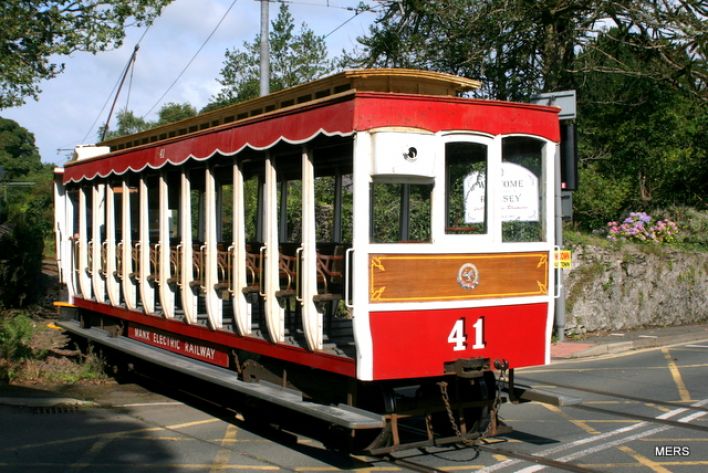"There has been a huge drop in passenger numbers on many of the island’s heritage railways - despite significant investment in the lines.
Passenger figures for 2019, which have just been released, show only the Steam Railway saw an increase - up 13% on the previous year.
In contrast, single journeys on the Manx Electric Railway were down a whopping 45% and return journeys on the Snaefell Mountain Railway slumped by 35%.
Less surprising, perhaps, given the Promenade reconstruction project, single journeys on the Douglas Bay horse trams were down 82%.
A spokesman for the Department of Infrastructure blamed a combination of weather, horse tram disruption and a change in the way passengers numbers are recorded.
In total, passengers numbers in 2019 were down 36.28%, from 515,100 in 2018 to 328,196 last year.
This is in sharp contrast to the figures for 2018 when we reported a boom time for the heritage railways.
Passengers numbers on the MER had doubled in seven years, and those on the SMR had gone up 71% over the same period.
But latest figures show the number of single journeys on the MER shrunk from 244,863 in 2018 to 135,857 last year. Return journeys on the SMR were down from 76,434 in 2018 to 49,852 last year.
And the horse trams were down from 80,606 single journeys in 2018 to just 14,380 last year.
The Steam Railway, however, saw single journeys increase from 113,197 to 128,107.
These figures will inevitably raise questions about whether the significant investment in the heritage railways is providing sufficient return.
Figures released last year showed that the Steam Railway, MER and SMR generated income of £1,956,551 but cost £3,812,388 to run while the horse trams cost £411,532 and brought in just £87,088.
The 2019 budget earmarked £6m of capital investment in heritage rail with a further £4.5m in each of the next four years, on top of the £4.6m in 2018-19.
A spokesman for the heritage railways said: ’The number of passengers using the Steam Railway rose by 13% year-on-year, which was mainly due to the increased number of cruise ships and other groups wishing to make use of the railway and its distinctive dining experience.
’We continue to see demand for 2020 bookings.
’The MER marked its 125th anniversary in 2018. A number of events were held throughout the season, leading to an unusually busy year.
’A reduction in numbers was anticipated in 2019 and this was exacerbated by a fall in passengers arriving from the horse tramway. Numbers are not expected to recover fully until the horse tram service is restored, as up to half of passengers transfer to the MER.’
The spokesman said the opportunity was also taken during 2019 to bring the methodology of counting the MER passengers in line with the other railways.
’Historically, data was unavailable from intermediate stops and a standard formula was used. A more accurate method is now available due to the current ticketing system and the number of Go Explore cards in use,’ he said.
However, figures released in the House of Keys last year suggest that the method of counting passengers had already been changed for the 2018 season.
Infrastructure Minister Ray Harmer told MHKs in a written answer that pre-2015 passenger figures on the MER were collated manually but the introduction of the Ticketer system in 2016 allowed accurate recording, leading to a significant rise in numbers between 2015 and 2016.
The spokesman said the MER anniversary events and a prolonged spell of good weather meant 2018 was also a very strong year for the Mountain Railway.
He said the weather was less kind during 2019, with passenger numbers returning to those recorded in previous years.
’Looking ahead, this year marks the SMR’s 125th anniversary and we are confident our exciting programme of summer events will bring visitors from around the world and lead to a growth in numbers,’ he added.
If central costs of £1,965,123, which apply to both bus and rail services, are included, together with £56,155 ’other income’ and this year’s capital expenditure of £4.5m, the heritage railways cost each island resident £103.09.
Without central costs, the figure is £79.50 a head."
